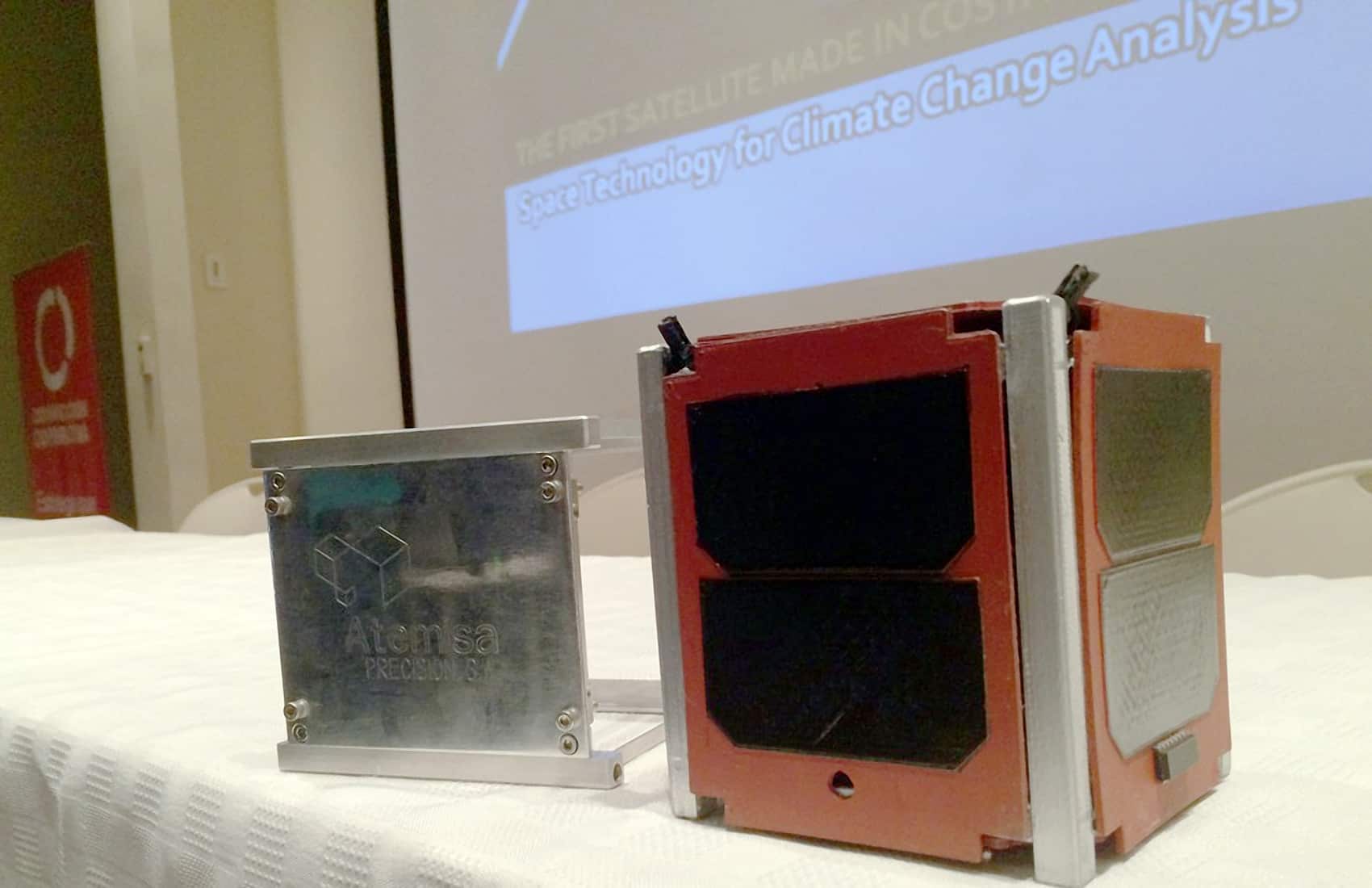As of Monday evening, Central America’s first satellite is one step closer to orbit. Less than 48 hours before deadline, just over 800 sponsors made it possible to surpass the crowdfunding campaign’s goal of $75,000 needed to send the region’s first satellite into space.
The 10-centimeter (4-inch) satellite, known as a picosatellite, is the key element of the Irazú Project, named after Costa Rica’s highest volcano, located in Cartago province.
Instruments on the satellite will take real-time measurements of temperature, humidity and carbon dioxide fixation. Data will be collected in a forest in Los Chiles, a mountainous area near Costa Rica’s border with Nicaragua, and will be used to evaluate the effects of climate change on forests.
The Costa Rica-based Central American Association for Aeronautics and Space (ACAE) and the Costa Rica Institute of Technology (TEC) are leading the project. It also has backing from a number of private companies.
ACAE President Carlos Alvarado said he was “very grateful to all those who believed in and trusted in the project during the crowdfunding campaign” that started March 21 and officially ends at 6 a.m. Costa Rica time on Wednesday.
Several components of the satellite were built in Costa Rica, and the money raised through the campaign will be used to buy the remaining components, Alvarado said.
Ticos engineers will be responsible for the satellite’s final assembly, which will take place here during the second half of this year.
The device will then be sent to Japan where it will undergo tests before being deployed into space from the Kibo Lab, the Japanese module at the International Space Station, with the support of the Kyushu Institute of Technology.
Terrestrial base
Once in space, the picosatellite will orbit Earth at about 400 kilometers and will broadcast information collected through devices known as dendrometers that will be attached to trees in order to measure the effects of climate variations on their growth.
TEC researchers built the dendrometers and will be responsible for analyzing all data that will will used by various TEC faculties in projects ranging from climate effects to numerical weather prediction.
Information collected also will be shared on a website as open data, so that it can be used by investigators and students all over the world.
ACAE will use all money collected beyond the $75,000 goal to fund the Ditsö Project, which consists of sending samples of the hardened forewings, or elytra, of Tico jewel scarabs to the International Space Station in order to evaluate the potential for replicating the material for coating satellites and other space equipment.
See a video explainer of the Irazú Project:






